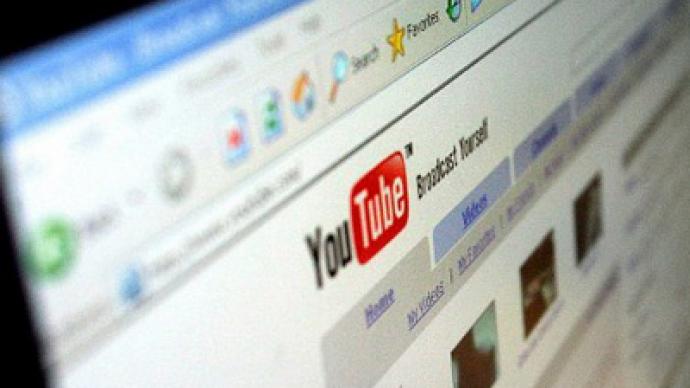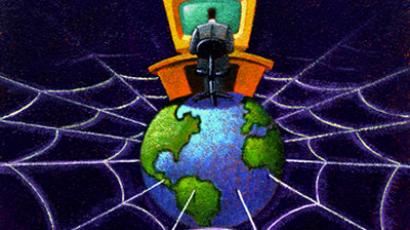Internet providers to start policing the web July 12

Some of the biggest Internet service providers in America plan to adopt policies that will punish customers for copyright infringement, and one of the top trade groups in the music biz announced this week that it could begin as soon as this summer.
The chief executive officer of the Recording Industry Association of America told an audience of publishers on Wednesday that a plan carved out last year to help thwart piracy is expected to prevail and be put in place by this summer. RIAA CEO Cary Sherman was one of the guest speakers among a New York panel this week and he confirmed that, at this rate, some of the most powerful Internet providers in America should have their new policies on the books by July 12, 2012.Last year, Time Warner, Verizon, AT&T, Comcast, Cablevision Systems and other Internet service providers proposed best practice recommendations that they suggested would help curb copyright crimes on the Web. The end result largely settled on consisted of a “graduate response” approach, a plan that would mean culprits could be issued a series of warnings for illegally downloading suspect material which, after a certain number of offenses, would lead to “mitigation measures,” connection speed throttling and termination of service."We anticipate that very few subscribers, after having received multiple alerts, will persist (or allow others to persist) in the content theft,” the Center for Copyright Information said in an official statement last summer as plans were first publicized. Now nearly a year after developments made by the big ISPs were first discussed, the RIAA’s Sherman says that online censorship sanctioned by corporate conglomerates such as Time Warner and Verizon are practically set in stone. Discussing the road to realizing how to implement the policies, Sherman briefly touched on the technical aspects of the plan this week during the panel. "Each ISP has to develop their infrastructure for automating the system," Sherman said. They need this "for establishing the database so they can keep track of repeat infringers, so they know that this is the first notice or the third notice. Every ISP has to do it differently depending on the architecture of its particular network. Some are nearing completion and others are a little further from completion."So what does this mean for you? If you’re an Internet user in America, almost certainly something significant. Between Time Warner, Verizon, AT&T, Comcast and Cablevision, those ISPs alone accounted for around 51 percent of the market in America back in 2008. Figures from June 2010 collected by the United Nation’s ITU division suggests that there are around 240 million Internet users now in the US, which means more than three-fourths of the country’s total population. With those big ISPs only thriving since their last figures were disclosed, 51 percent coverage of the market today would mean that around 120 million users can expect to fall under the umbrella of a massive campaign that could soon see half of the country at risk of having their Internet shut off.As RT reported last year, a flip of the kill-switch is indeed an option that ISPs can take if they decide they find their customers at fault. That doesn’t mean it’s the be-all-end-all response, though. Under the “six-strike” policy discussed last year, each alleged instance of copyright infringement would prompt the ISP to reach out to its customer in question and inform them that they have detected a violation of US law. Strikes one through four would constitute email warnings of increasing severity, but five through six can come with legal action and end with the termination of service and potentially time behind bars. Although cooperating ISPs said last year that they would suspend service after a certain number of infringements, today they are hesitant to announce permanently cancelling any accounts — but merely putting them on hold while users respond to their legal requests. The explanation for a change of heart, of course, comes down to money. Earlier this year Cary Sherman penned a ranting diatribe in the New York Times attacking opponents of the failed Stop Online Piracy Act and the Protect IP Act — or SOPA and PIPA, respectively — two anti-Internet legislations that had the hefty support of the RIAA. “There's no question that all the companies that are providing access to music are benefiting in some way, legal companies, and that's entirely appropriate,” Sherman wrote earlier this year. “ISPs have done very well by the availability of music online, because it has created greater demand for broadband access, and as a result they have now penetrated to the 66-67 percent level of US households, because they want access to the content that the entertainment industry offers.”With the big ISPs having more than 100 million users at their mercy, limiting connection speed could easily convince a good number of people to remediate the alleged violations they are accused of, but actually terminating service for good could be a grave mistake for the industry. National Cable & Telecommunications Association President James Assey said last year that, by implementing the plan,“We are confident that, once informed that content theft is taking place on their accounts, the great majority of broadband subscribers will take steps to stop it.”Some companies have already taken similar steps, but have been met with their fair share of roadblocks along the way. Verizon has previously sent warning letters to users alleged to be in violation, but those warnings have in some cases proved to be bothersome. In one 2010 episode, for instance, a 53-year-old grandmother was threatened with having her Internet shut-down for sharing copyrighted material — specifically clips from the television show South Park — to which she was completely unaware of. In that case it was an instance of mistaken identity where the woman’s WiFi signal had been hijacked. In their own report, CNet reporters acknowledged that Verizon never bothered to investigate into the legitimacy of their own claims until after a third-party became involved in the mediation. This isn’t to say, of course, that we are telling you that the RIAA and certain Internet service providers are the bad guys here. After the SOPA legislation threatened to terminate a good chunk of online services, many websites waged a protest earlier this year by taking themselves offline for 24-hours. Cary Sherman then took to the press to turn the fight around and make it seem like it was the entertainment industry that was suffering, not sites like Wikipedia, a champion of the protest; Cary called them out in his op-ed for aiding in a “digital tsunami” that, along with Google, “manufactured controversy by unfairly equating SOPA with censorship.”“The hyperbolic mistruths, presented on the home pages of some of the world’s most popular Web sites, amounted to an abuse of trust and a misuse of power,” added Sherman. “When Wikipedia and Google purport to be neutral sources of information, but then exploit their stature to present information that is not only not neutral but affirmatively incomplete and misleading, they are duping their users into accepting as truth what are merely self-serving political declarations.”Cary went on to say that the last minutue decision to drop SOPA was a questionable one prompted by the mass creation of “misinformation” and suggested it wasn’t the work of democracy, but rather demagoguery. Of course, when the RIAA attacked Megaupload for copyright infringement — which eventually led to US authorities seizing and shutting down the file-sharing site — the response from hacktivists aligned with the Anonymous collective was a massive distributed denial-of-service attack on the websites for the RIAA and a handful of other music and movie biz sites.With SOPA and PIPA out of the way for now, American users of the Web must look ahead before declaring victory in a war against online censorship. Recently the US fought and won for the extradition of a 23-year-old UK man who operated a website that American authorities decided was in violation of US law. If they are willing to ship a college student abroad to bring him to trial for posting a few links, will they think twice before turning off your Internet for sharing your own copies of South Park? That’s an episode you’ll have to stay tuned for to find out.














